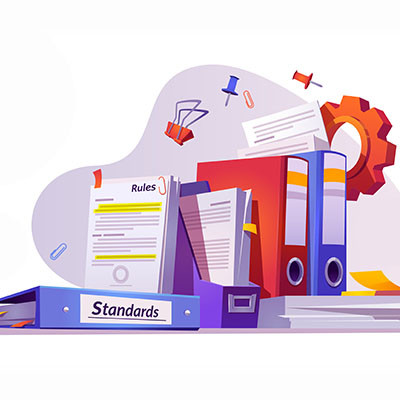Directive Blogs
IT Compliance is Important: Here are Some Requirements You May Need to Know
Compliance is a critical element of many businesses’ requirements, with pretty severe penalties as a consequence if the prescribed standards are not met. Even more importantly, most compliance requirements and regulations are put in place for the welfare of not only the business, but its clientele as well. This makes it critical to know which apply to your business, and how to meet them fully.
Let’s consider how your IT may need to meet certain compliance standards, and how we can help ensure it does.
How Do IT Compliance Needs Impact a Small or Medium-Sized Business?
To get some context, let’s begin by identifying what IT compliance specifically looks like when a business incorporates it properly.
By definition, IT compliance is a business’ practice of abiding by various regulatory requirements that pertain to the use of technology as a means of ensuring the security of client or customer data.
These regulations can come from different sources. Some are established by law for different industries, like the Health Insurance Portability and Accountability Act (HIPAA) does for the medical field, and others are implemented by industry authority groups, like the Payment Card Industry Digital Security Standard (PCI DSS) was agreed upon by a consortium of payment card providers. Failure to comply with such standards and regulations can have various consequences to the organizations expected to do so, ranging from monetary fines to lost privileges.
Let’s make one thing very, very clear: these fines are not something to be taken lightly.
Depending on the compliance framework that your organization has violated, these fines can reach truly painful levels. A business that severely violates the United Kingdom’s General Data Protection Regulation (GDPR), for example, could be fined 20 million euro or four percent of their global turnovers. It defaults to the higher penalty, too.
This is just one of many regulations that your business could potentially be held accountable for, depending on your industry and what it is you do.
Common Compliance Standards with IT Ramifications
What follows are a list of standards that you could likely need to consider, particularly where your IT is concerned:
- HIPAA (The Health Insurance Portability and Accountability Act): Amongst other requirements, HIPAA establishes standards regarding patient information confidentiality and security for the healthcare industry and any affiliated parties.
- NIST SP 800-171: This standard, established by the National Institute of Standards and Technology, places various cybersecurity requirements on businesses working with federal and state agencies in the U.S.
- GDPR (The General Data Protection Regulation): This law, established to protect the information of European Union citizens and residents, applies to any company—globally—that utilizes this data.
- PCI-DSS (The Payment Card Industry Data Security Standard): This standard, implemented by PCI Security Standards Council, puts data security requirements on any business that wants the ability to accept payments via card.
Again, this is just a selection of some of the more well-known standards…more could easily apply to your specific situation. Fortunately, you don’t have to navigate your IT compliance needs alone.
Turn to Us for Assistance in Meeting Your IT Compliance Requirements
As part of our managed services, Directive can help ensure that your business technology is not only functional, but is aligned with the standards it needs to meet. Find out more by giving us a call at 607.433.2200.


